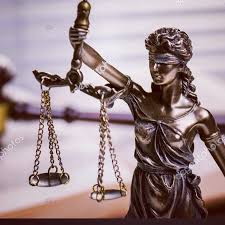Lawyer
Rules of conduct during the curfew
Introduction
Curfews are an important measure in times of emergency, including military conflicts, natural disasters, or other crisis situations. This restriction is aimed at ensuring public order and safety, as well as preventing possible threats. Compliance with the curfew rules is mandatory for all citizens, and failure to comply with these rules can lead to serious legal consequences. In this article, we will review the basic rules of behavior during curfew, their legal basis and the consequences of violation.
Basic rules of behavior during the curfew
Adherence to the set time
A curfew defines a specific time during which citizens must stay at home or in other safe places. This time usually lasts from evening to morning. Compliance with this time is mandatory for everyone without exception. Exceptions may be made only for persons who have special permits or perform critical functions.
Special permits and exceptions
Certain categories of citizens may receive special permits to move around during the curfew. These may include medical workers, emergency workers, military personnel, and other persons whose functions are critical. To obtain such a permit, you need to contact the relevant authorities. Legal advice will help you understand the procedure for obtaining a permit and the requirements for documents.
Restrictions on movement
During the curfew, it is prohibited to move around without an urgent need. Citizens should stay at home or in other safe places. Going out is only allowed in cases of extreme necessity, such as to receive medical care or in case of an emergency. A legal analysis of the situation will help determine whether there are grounds for going out during the curfew.
Requirements for documents
During the curfew, citizens must have their identity documents and, if necessary, special travel permits. This will help law enforcement agencies to quickly identify a person and verify the legality of their stay on the street. Having your documents checked by a lawyer will help you avoid problems with their compliance with legal requirements.
Legal basis of the curfew
National legislation
Curfews are imposed on the basis of national legislation, which provides for measures to ensure public order and safety during emergencies. Relevant laws and regulations define the procedure for imposing curfews, the rights and obligations of citizens, as well as the measures of liability for violating these rules. Legal advice will help you understand the legal basis for the curfew and the requirements of the law.
International law
In some cases, the introduction of curfews may be regulated by international law, in particular, when it comes to ensuring human rights during armed conflicts or other emergencies. International organizations, such as the UN, can provide guidance on curfews and the protection of citizens' rights. Legal advice will help you understand the international legal aspects of curfews and their application in a particular situation.
Consequences of curfew violation
Administrative liability
Violation of the curfew may result in administrative liability, including fines, detention or other administrative sanctions. Law enforcement agencies have the right to detain persons who violate curfews and bring them to justice in accordance with the law. Legal analysis of documents will help determine the legality of law enforcement actions and protect the rights of citizens.
Criminal liability
In some cases, curfew violations may have more serious consequences, including criminal liability. This applies to cases where the violation is related to the commission of a crime or the creation of a threat to the life and health of others. Consulting a lawyer is necessary to protect the rights of citizens who may be held criminally liable for violating the curfew.
Violation of human rights
Violation of the curfew may lead to human rights violations, including the rights to freedom of movement, personal security and protection from unlawful detention. In such cases, citizens have the right to apply to national and international organizations to protect their rights. A legal analysis of the situation will help to identify human rights violations and take measures to restore them.
Recommendations on how to comply with curfew rules
Stick to the set time
First and foremost, adhere to the set curfew time. This will help you avoid possible legal problems and ensure your safety.
Get special permits
If you need to move around during curfews, obtain special permits from the relevant authorities in advance. This will ensure that your stay on the street is legal.
Carry your documents with you
Always carry your identification documents and special travel permits with you. This will help law enforcement authorities to quickly identify you and check the legality of your stay on the street.
Avoid unnecessary movements
Avoid unnecessary movement during the curfew. Only go outside when it is absolutely necessary, such as to get medical attention or in case of an emergency.
Seek legal assistance
If you encounter any legal problems during the curfew, seek advice from a lawyer or attorney. This will help you understand your rights and obligations and protect your interests.
Conclusion.
Compliance with curfew rules is an important measure to ensure public order and safety during emergencies. Healthcare workers, emergency workers, and other persons performing critical functions may be granted special permits for movement. Violation of the curfew may result in administrative or criminal liability, as well as human rights violations. Consulting a lawyer or attorney will help you understand your rights and obligations and protect your interests.
Legal analysis of the situation / written legal advice will help you solve your problem. Please contact the legal marketplace "CONSULTANT", which provides any services you need to choose from: legal opinion, Writing a lawyer's request, analysis of the situation by a lawyer, analysis of the situation by a lawyer, legal analysis / legal analysis of the situation, legal opinion, legal conclusion, lawyer's opinion, audit by a lawyer, legal audit, written legal advice. A lawyer consultant is always there for you!




































